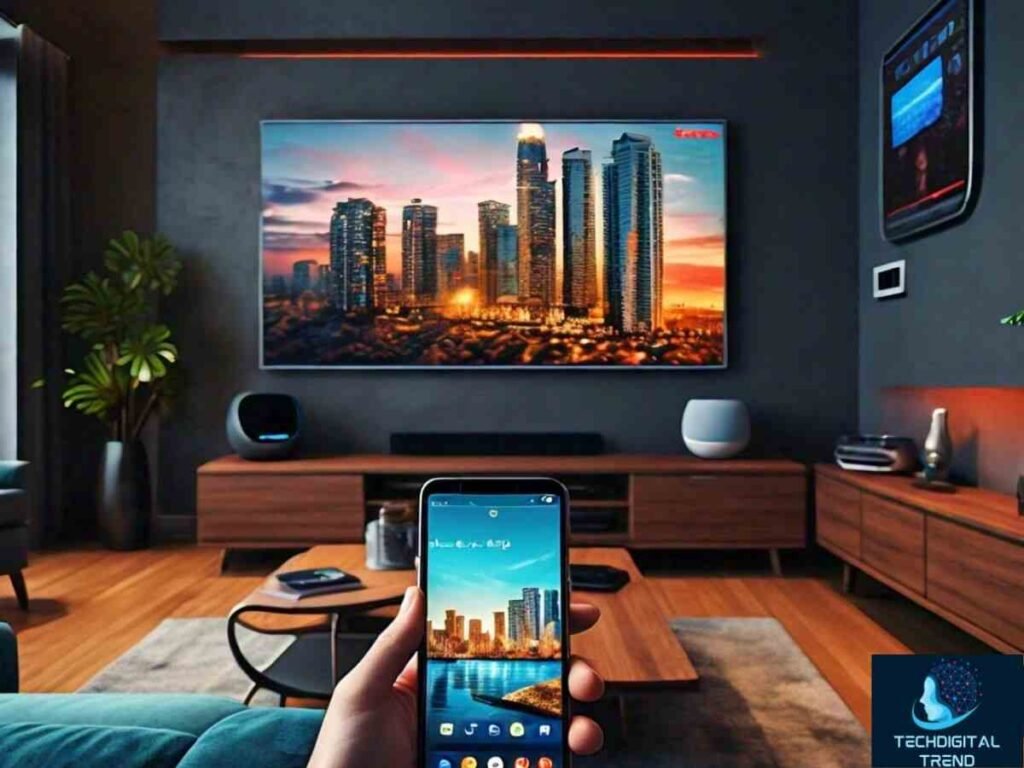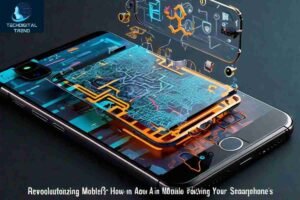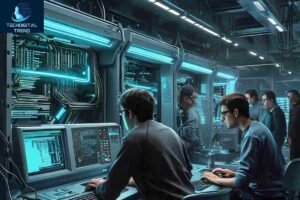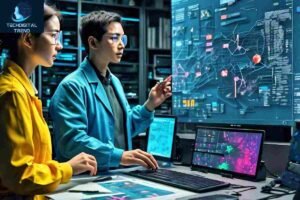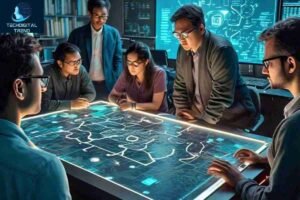Table of Contents
ToggleTechnological innovations
Technology has woven itself into the fabric of our daily lives, transforming the way we work, communicate, and entertain ourselves. From smartphones and smart homes to AI and IoT, technological innovations have reshaped our daily routines in profound ways. This article explores the various dimensions of these changes, highlighting how technology serves both as a facilitator and a disruptor in modern life.
Smartphones
The Epicenter of Digital Life:
- Smartphones have evolved from mere communication tools to pivotal hubs of our digital existence. They manage our schedules, provide instant access to information, and keep us connected with friends and family. The ease of access to services like online banking, shopping, and navigation has simplified many tasks that once required significant time and effort.
- The Internet of Things (IoT) has made the dream of smart homes a reality. Devices such as smart thermostats, lights, and security systems that can be controlled remotely or through voice commands not only offer convenience but also increase energy efficiency and security. IoT extends beyond homes to cities, enhancing traffic management, waste disposal, and energy use, thereby elevating urban living standards.

Interconnecting Our Physical and Digital Worlds
- There has been a noticeable movement toward remote work made possible by technological improvements. Video conferencing tools like Zoom and collaborative platforms like Slack and Trello have made it possible for teams to work effectively from different parts of the world. This shift not only helps in balancing work-life but also opens up global opportunities for employment.
Automation and AI
Reshaping Job Roles:
- Automation and artificial intelligence (AI) have transformed industries by streamlining operations and increasing efficiency. While AI has replaced some jobs, it has also created new roles and opportunities, particularly in tech-driven sectors. The key challenge and opportunity lie in upskilling and reskilling the workforce to thrive in this changing landscape.
The Evolution of Education
E-Learning:
- Technological innovations have dramatically altered the educational landscape. E-learning platforms like Coursera and Khan Academy make learning accessible to a broader audience, breaking geographical and financial barriers. Additionally, technology in the classroom, such as interactive whiteboards and educational apps, has enriched the learning experience, making it more engaging and interactive.
Personalized Learning
Tailored Educational Experiences:
- AI and data analytics enable personalized learning experiences that adapt to the individual’s pace and style of learning. This approach has shown promise in improving learning outcomes by addressing students’ specific needs and reinforcing concepts where they struggle the most.
The Shift in Healthcare
Telemedicine and Technological innovations:
- Telemedicine has emerged as a crucial technology, especially highlighted during the COVID-19 pandemic. It allows patients to consult with doctors via video calls, reducing the need for physical visits and enabling quicker access to care. This is particularly beneficial for people in remote areas and those with mobility issues.
Wearable Health Devices: Empowering Personal Health Management
Wearable devices like fitness trackers and smartwatches monitor health metrics such as heart rate, sleep patterns, and physical activity. This information empowers individuals to manage their health proactively, often integrating with mobile apps to provide insights and health tips tailored to the user’s data.
Entertainment Transformed
Streaming Services and technological innovations
- The rise of streaming services like Netflix, Amazon Prime, and Spotify has changed how we consume entertainment. These platforms offer on-demand access to a vast array of content, allowing users to watch or listen to what they want, when they want, without being tied to a broadcast schedule.

Virtual Reality
Expanding the Frontiers of Entertainment:
- Virtual reality (VR) technology has opened up new frontiers in entertainment, providing immersive experiences that were previously impossible. From virtual tours of foreign countries to VR gaming, this technology offers a unique way to experience and interact with digital content.
The Challenge of Digital Security and Privacy
Cybersecurity and technological innovations:
- The necessity of cybersecurity is increasing along with our reliance on technology.. Innovations in cybersecurity are crucial in protecting sensitive information and ensuring the integrity of our digital activities. Individuals and organizations must prioritize security measures to protect against cyber threats.
Privacy Concerns
The Double-Edged Sword of Connectivity:
- While technological innovations has made our lives easier, it also raises significant privacy concerns. The vast amounts of data collected by various devices pose risks if not managed properly. Ensuring data privacy and ethical use of technology is a pressing challenge in the digital age.
Navigating the Technological Landscape
Technological innovations continue to redefine our daily lives, offering both opportunities and challenges. While they provide unprecedented convenience and access to information, they also require us to adapt to new ways of living and working. As we navigate this ever-evolving landscape, it is crucial to balance the benefits of technology with mindful consideration of its impact on our privacy and well-being.
OPEN This link: Tap to here

